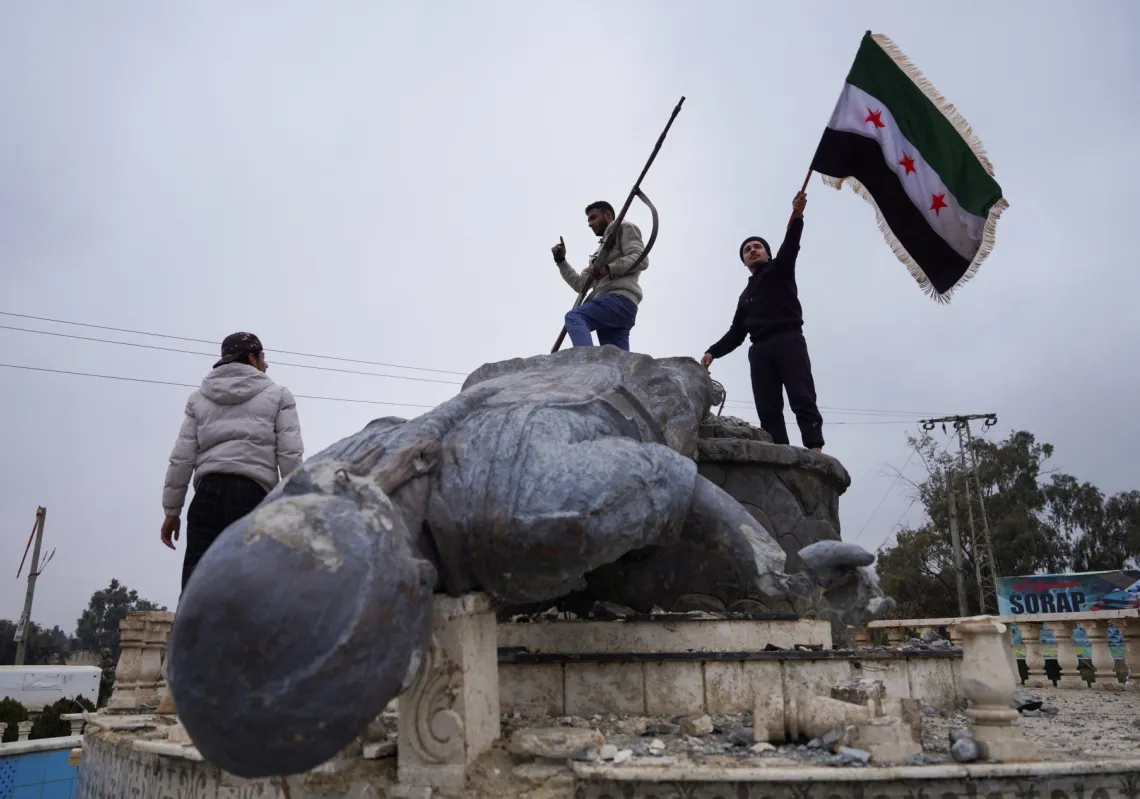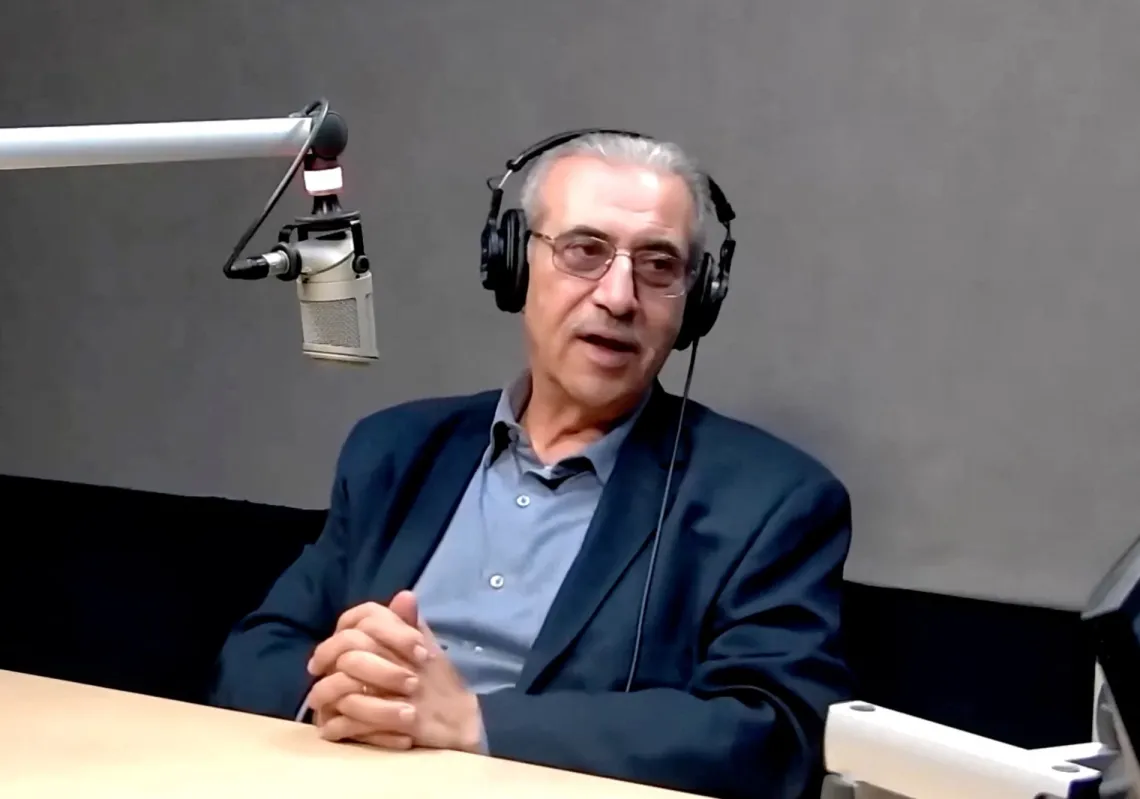 Syrian refugees wash clothes at the Zaatari Camp, Jordan’s first official camp for Syrian refugees[/caption]The global response to the Syrian conflict has been dominated by fraught discussions about intervention, sanctions, and arming opposition fighters, all under the umbrella of providing humanitarian assistance. However, as the scores of Syrian refugees fleeing the conflict are discovering, the prioritization of those who are the most vulnerable has once again been treated as an unpleasant afterthought.
Syrian refugees wash clothes at the Zaatari Camp, Jordan’s first official camp for Syrian refugees[/caption]The global response to the Syrian conflict has been dominated by fraught discussions about intervention, sanctions, and arming opposition fighters, all under the umbrella of providing humanitarian assistance. However, as the scores of Syrian refugees fleeing the conflict are discovering, the prioritization of those who are the most vulnerable has once again been treated as an unpleasant afterthought.
With the nearly 17-month uprising descending upon Syria’s two main cities, Damascus and Aleppo, which had both been spared the worst of the fighting until recently, refugees have begun to stream into neighboring Turkey, Jordan, Lebanon and Iraq.
[inset_left]In recent weeks Turkey’s camps have been rocked by shortages of food[/inset_left]
According to the United Nations Refugee Agency (UNHCR), refugee numbers have tripled in the last three months, and more than 120,000 Syrians are now registered with the agency in bordering countries, although the actual numbers are thought to be much higher and rising.
In spite of the protracted nature of the conflict and the widespread media attention surrounding it, many refugees have been greeted by scarce resources, with most camps operating on limited budgets and seemingly incapable of handling the rapidly increasing number of civilians fleeing the fighting.
Another problem is that of border closures. Overwhelmed by the influx and scared that the fighting might spill across borders, Syria’s neighbors have, to varying degrees, blocked the movement of either goods or people. Only Lebanon has so far resisted calls for a clampdown.
Apart from Turkey and Israel, Syria’s neighbors are not party to the 1951 UN Refugee Convention, the main human rights instrument dictating the treatment of refugees, but this only limits their responsibilities.
As UN members, all are signatories to the Universal Declaration of Human Rights, and are obligated to secure the “right to seek and to enjoy in other countries asylum from persecution.”
Unfortunately, not even this most basic of rights has been fully observed.
A day after his meeting with US Secretary of State Hillary Clinton on 16 July, Israeli Defense Minister Ehud Barak made Israel’s position clear: “If we have to stop waves of refugees, we will stop them.”
Things will have to get almost unimaginably worse for Syrians to seek shelter in Israel. But if they do, and Israel responds as it did during the 2011 Nakba Day memorial protests when it opened fire on demonstrators trying to enter, the country faces the prospect of gunning down civilians, or watching as pro-Assad forces do this for them.
While such a tough response was to be expected, the actions of fellow Arab or Muslim states have been more surprising.
On 20 July, Iraq took the provocative move of deploying troops and closing its borders, even to refugees. This stood in stark contrast to Syria’s acceptance of 1.2 million Iraqi refugees during the Iraq War.
Although Prime Minister Nouri Al-Maliki reversed this stance on Monday 23 July, Iraq’s ability to look after refugees remains dubious, especially since it can hardly cope with its own internal problems. Indeed, Iraq has had great difficulty repatriating its own citizens fleeing Syria, including some 10,000 that left in the week following 16 July.
As Iraqi authorities noted, its own troubles mean that Jordan and Turkey will have to shoulder an even greater share of the refugee burden. It is unclear how capable both states are of doing this.
On Monday 23 July, Jordan closed its borders with Information Minister, Samih Maaytah, announcing that Jordan would “take all necessary measures to protect the northern region as well as national security from any kind of infiltration.”
He pledged to “continue providing aid to our Syrian brothers who have sought refuge in the kingdom,” but remained vague about what this meant for new arrivals, stressing that Jordan was “closely monitoring developments and working on controlling the influx of refugees."
Regardless of the uncertainty, refugees have continued to flood in, but not all are being admitted. Even prior to Maaytah’s announcement, widespread reports had emerged that Syrians, in particularly men, were being denied entry.
The 6-million strong kingdom has been vocal about its concerns that the 140,000 Syrians, who have fled to Jordan since the start of the uprising, could overwhelm the country’s water reserves, internal divisions, and economic problems, all of which have already been exasperated by the existence of large Iraqi and Palestinian refugee populations.
Subsequently, Jordan long resisted establishing permanent camps. The first UNHCR designated facility, for now capable of housing 5,000 only opened last week.
It has enough land to house 113,000 but money has for now been in short supply, leaving the remaining 36,000 registered refugees—not to mention the other 50,000 estimated to be in need of assistance—in the lurch.
Turkey—once an eager supporter of refugees and opposition fighters alike—has also followed in Jordan’s footsteps, shutting all remaining border crossings last Wednesday. Within hours, UNHCR issued reassurances this would not affect refugees, but the news may be of little comfort to the 43,000 UNHCR-registered Syrians already inside Turkey, and those still trying to get in.
In recent weeks Turkey’s camps have been rocked by shortages of food, water, and medical provisions. Skirmishes have erupted during food distribution times, leading to injuries, and prompting police to fire teargas at crowds.
That the refugee issue is only now being addressed is glaring. As early as April, at least 70 countries gathered for an Ankara-based Friends of Syria conference were pledging a monthly multimillion-dollar sum to equip activists and provide communications equipment. By June, Qatar and Saudi Arabia were stepping up this support to include arms shipments. Meanwhile, the US has begun to provide the FSA with technical and intelligence assistance in their fight against the Assad regime.
Yet, the day of the Damascus assassinations, the UN was launching an emergency appeal to plug an 80 percent deficit in its $189 million budget earmarked for civilians inside Syria and $193 million for refugees.
The EU has since pledged €20 million ($24 million), and the Arab League $100 million, but with funding notoriously slow at converting to on-the-ground action, this seems like an all-too-familiar case of putting the cart before the Middle East donkey.
The problem is not so much whether or not international support for the opposition was legitimate or necessary. It may have been both.
Proponents of early support may well be proven right but if they are, their unwillingness to prioritize the humanitarian aspects of the conflict will be even harder to explain.








